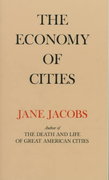Question
Economists, historians, geographers, and historians have long wondered why some countries get rich and others don't? Many factors have been suggested as being signification 1.
Economists, historians, geographers, and historians have long wondered why some countries get rich and others don't?
Many factors have been suggested as being signification
1. Quality of Institutions (clearly defined property rights, effect legal enforcement of contracts, adherence to rule of law effectiveness of key public institutions,
2. Geography (countries in temperate zones do better than countries in tropical zones because harsh cold weather focuses people to invest and plan for the future (crops only grow in the spring and summer so a surplus most is harvested and stored to survive the winter whereas crop production is possible year-round so there is less incentive to plan for the future also humid climates are enervating and there are more infectious diseases that affect both humans and large domesticated animals. In addition, tropical soils are poor than temperate soils because of the leaching action of hard torrential rains compared to the percolation effect of melting snow in temperate climates(less damaging to soil structure). Lastly, landlessness v. coastal location is important. Coastal countries tend to have lower transport costs can engage in long-distance trade and are more easily connected to other countries. Landlocked countries tend to be poorer than the ones with coastlines.
3. Leadership and Human Capital
Some countries have few natural resources but grow faster and have better income distributions than natural resource-rich countries. The smaller resource-poor countries tend to invest more in human capital, have higher rates of labor productivity, and have more broad-based growth. One key ingredient is the quality of political leadership. Better leaders that are focused on the long-term and inclusion tend to emerge whereas resource-rich countries tend to spur competition, tension, and rivalries between factions in the society to control the rents from the resources. Corruption and exclusion tend to be more common in resource-rich countries. Exceptions to this rule are the settler colonies (US, Canada, Australia, New Zealand). In these cases, Northern Europeans colonized these countries completely displaced the indigenous peoples, and transferred high-quality institutions) .
Example: Singapore( resource-poor and rich) v. Guyana (resource-rich and poor).
5. Culture, Religion, and Values
Countries that have Confucian values and Protestant (Calvinist) values grow faster than countries that have Catholic, Hindu, Islamic, and animist religious traditions.
6. Colonialism
Colonialism (1500-1960) has served to undermine and distort development in the formerly colonized countries and transferred large amounts of economic surpluses to the colonial masters that were invested and placed those countries on higher growth trajectories. Contemporary trade arrangements and the mobility of capital reinforce the initial inequalities for the most part.
Choose the factor that you think is most important in explaining economic growth and development, Please cite examples and references.
Step by Step Solution
There are 3 Steps involved in it
Step: 1

Get Instant Access to Expert-Tailored Solutions
See step-by-step solutions with expert insights and AI powered tools for academic success
Step: 2

Step: 3

Ace Your Homework with AI
Get the answers you need in no time with our AI-driven, step-by-step assistance
Get Started


